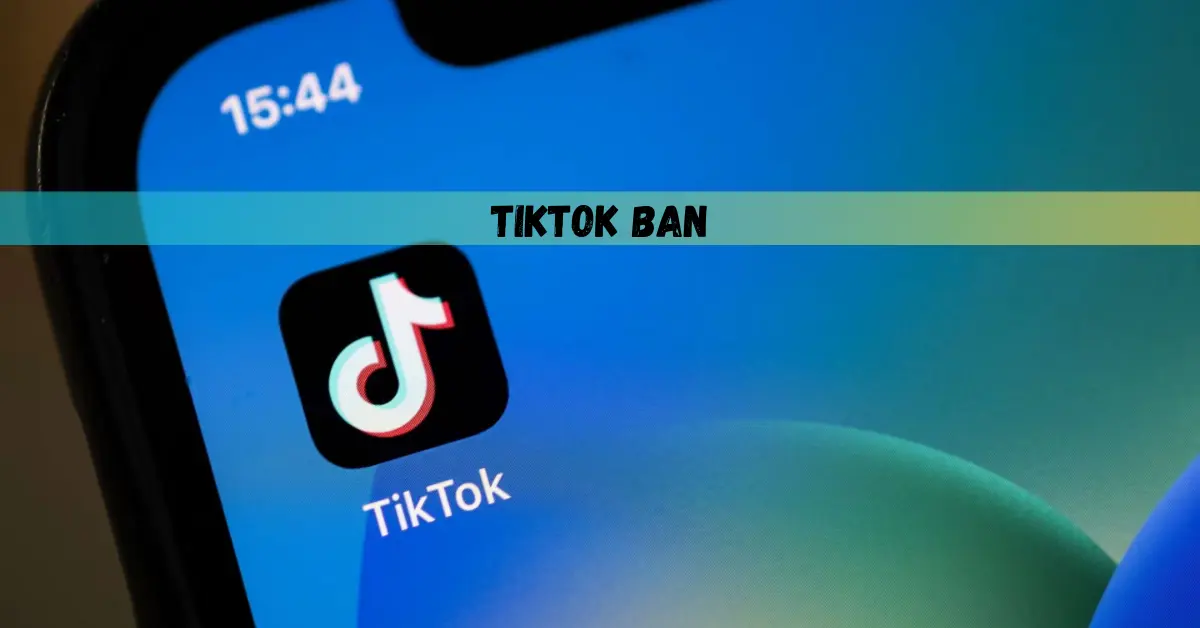TikTok, the ubiquitous short-form video app, has become a cultural phenomenon, particularly among younger demographics. However, its meteoric rise has been accompanied by growing scrutiny in the US, with the possibility of a ban looming large. Let’s delve into the reasons behind this potential move.
Why Is TikTok Getting Banned In the US?
National Security Concerns Take Center Stage
The primary driver behind the potential ban stems from national security anxieties. US lawmakers harbor concerns that user data collected by TikTok, owned by the Chinese company ByteDance, could be accessed by the Chinese government. This apprehension is fueled by Chinese laws mandating cooperation with government data requests.
While TikTok vehemently denies any data sharing with the Chinese government, the lack of a transparent data security framework adds fuel to the fire. The app’s ownership structure further intensifies these anxieties, with some fearing the app could be used for misinformation campaigns or content manipulation to influence US opinion.
FBI Director Christopher Wray echoed these concerns in a Congressional hearing, calling TikTok a “tool” with “national security risks.” This sentiment has led to the introduction of the “Protecting Americans from Foreign Adversary Controlled Applications Act,” which could pave the way for a ban.
Today the House will vote on a bill that “bans TikTok” but it’s just another slippery slope. Eventually they’ll ban X and any other company that the government deems a spreader of misinformation.
— 🇺🇸Travis🇺🇸 (@Travis_in_Flint) March 13, 2024
Since when has giving the government more control been a good thing?
Beyond Security: A Multi-Faceted Issue
The potential ban isn’t solely driven by national security. Some lawmakers also express anxieties about the app’s impact on children’s mental health, citing concerns surrounding addictive algorithms and the potential for exposure to inappropriate content.
The Current Landscape: A Ban or a Compromise?
As of March 2024, a complete ban on TikTok hasn’t materialized. However, restrictions are already in place. Federal employees and those in 34 states are prohibited from using the app on government devices. Additionally, Montana became the first state to ban TikTok on all devices, though this is being contested in court.
The future of TikTok in the US remains uncertain. Negotiations between the US government and ByteDance are ongoing, with a potential deal focusing on data storage and security measures. Whether a compromise is reached or a ban becomes reality will likely depend on the outcome of these negotiations and the evolving security landscape.
Looking Ahead: A Balancing Act
The potential TikTok ban highlights the complex tension between national security concerns and the free flow of information. Finding a solution that addresses security anxieties while safeguarding user privacy and free expression remains a significant challenge.
Also read: Remembering Eric Carmen the Famous Singer Who Died Today
Has the US Congress Taken a Step To Ban TikTok?
Yes, US Congress Moves Forward with Potential TikTok Ban
The US Congress has indeed taken a significant step towards a potential ban on TikTok. Here’s a breakdown of the recent developments:
Bipartisan Bill Gains Traction:
In March 2024, the House Energy and Commerce Committee unanimously passed a bill that could force ByteDance, TikTok’s parent company, to divest ownership of the app within the US. This legislation, introduced by representatives from both Republican and Democratic parties, signals growing bipartisan support for restricting TikTok.
House Vote on the Horizon:
The House is scheduled to vote on the bill imminently. If passed, it would then move to the Senate for consideration. President Biden has indicated his support for the bill, suggesting it could become law if it navigates the legislative process successfully.
Negotiations Continue:
While the bill represents a significant step, it’s important to note that the situation remains fluid. Negotiations between the US government and ByteDance are ongoing. A potential deal focusing on data storage and security measures could still avert a ban.
Uncertain Future:
The ultimate fate of TikTok in the US remains uncertain. The outcome of the congressional vote, the success of negotiations between the US and ByteDance, and the evolving security landscape will all play a role in determining whether a ban becomes reality.
Content Contributor: Rehana Sengupta









